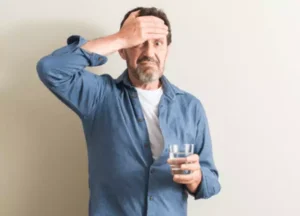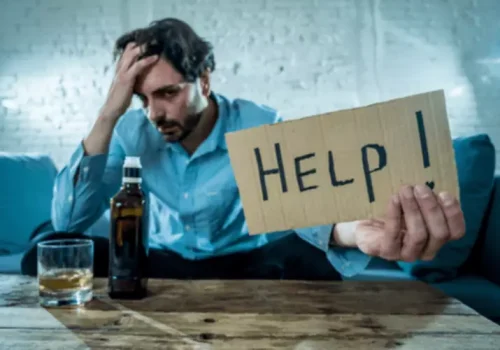
These medications work by reducing alcohol dependence, stabilizing brain chemistry, and preventing relapse, making recovery more manageable. Medication-assisted treatment (MAT) is a clinically approved approach that combines FDA-approved medications with therapy to help individuals manage alcohol cravings and withdrawal symptoms. Alcohol detox is the process of eliminating alcohol from the body under medical supervision to manage withdrawal symptoms safely and effectively. During detox, the body adjusts to the absence of alcohol, which triggers severe symptoms such as tremors, seizures, confusion, and delirium tremens (DTs).
Illegal Drug Addiction
One of the main reasons why seeking treatment is crucial is to manage cocaine withdrawal symptoms. With the help of trained professionals, you can safely detoxify your body and manage any withdrawal symptoms that may arise. Seeking treatment for cocaine addiction is the first step towards recovery and a brighter future.

Therapeutic Approaches for Cocaine Addiction
You may participate in programs that focus on relapse prevention planning along with skills-building and evidence-based therapies. The most common treatment approaches are evidence-based, individual treatment, twelve step, holistic and personalized treatment. You might find yourself taking part in 1-on-1 counseling, group therapy, cognitive behavioral therapy, family therapy and twelve step facilitation. Our independent research team evaluated the best treatment centers for cocaine. Review our curated list of centers offering care options such as virtual, outpatient, and residential treatment. Read unbiased reviews to find the best treatment center for your recovery needs.
© Cornerstone Healing Center 2025
When a person uses cocaine, the drug blocks the reabsorption of dopamine, leading to an unnatural buildup of dopamine in the brain’s reward pathway (Volkow et al., 2021). This excess dopamine causes intense euphoria, reinforcing the desire to use the drug again. Over time, repeated use leads to neuroadaptive changes, making the brain dependent on cocaine to experience pleasure. Common mistakes during recovery from crack addiction include returning to old habits alcoholism symptoms or isolating oneself from friends or family members. A 2009 study published in the journalDrug and Alcohol Dependence demonstrated that CBT4CBT helped reduce drug use among participants up to six monthsafter completing rehab.
- One medication commonly used in MAT programs for cocaine addiction is disulfiram.
- Cocaine addiction is a complex and challenging condition that affects not only your physical health but also your mental and emotional well-being.
- With advances in technology, online counseling, telehealth and teletherapy services are becoming more common and effective forms of mental health treatment.
- Cocaine is a very powerful and addictive stimulant drug made from coca leaves often harvested in South America.
- Financial assistance options available for alcohol rehab include scholarships, grants, sliding-scale fees, and nonprofit funding programs.
During the assessment, the severity of your cocaine addiction is evaluated to determine the most effective and personalized treatment plan for you. At CCCADA, we understand that every individual is unique, and their addiction requires a tailored approach. We offer individualized treatment plans that cater to your specific needs, ensuring the best chances of successful recovery. It’s crucial to understand the significance of getting professional help for your cocaine addiction. Drug abuse, especially cocaine use, can have devastating effects on your physical and mental health. Things that happen if you relapse after alcohol rehab include returning to treatment, adjusting recovery strategies, and seeking stronger support systems.

- Our nationally recognized behavioral health center specializes in outpatient and residential care for teens and young adults, with specific programs for patients ages and ages 18-25.
- Our state-specific resource guides offer a comprehensive overview of drug and alcohol addiction treatment options available in your area.
- Clients at Carolina Center for Recovery will undergo a personalized journey through one of our highly effective treatment programs.
A strong support network is an invaluable resourcefor people striving to maintain sobriety after cocaine treatment. Medical professionals strive to help clients feel comfortable during detox. They may provide medicines to alleviate the effectsof withdrawal, but the Food and Drug Administration has not approved any medications to treat cocaine addiction. They have assisted thousands of people in overcominga cocaine use disorder, a medical term for addiction to crack or cocaine.
- A 30-day program provides a structured foundation for recovery, while 60- and 90-day programs offer deeper behavioral therapy and relapse prevention strategies.
- Eboni Fields, MS LPC, is a seasoned Clinical Director who brings over a decade of experience in behavioral health and substance abuse.
- Through structured therapy sessions, individuals in rehab learn accountability, honesty, and consistency, helping them regain the trust of loved ones.
- During coke rehab, most clients take part in individual cognitive behavioral therapy (CBT) to address the psychological dependency that comes with cocaine addiction.
- Known for its intense euphoric effects, cocaine can quickly lead to dependence, with users chasing short-lived highs that often come at a devastating cost.
- During the assessment, various factors will be considered to determine the severity of your addiction.
Partial Hospitalization Programs (PHP)

We recognize the importance of having a strong support system in place, which is why we provide resources to help you cope with the impact of addiction on your family and loved ones. In addition to therapy, holistic approaches often include activities that promote physical well-being, such as exercise, nutrition, and mindfulness practices like yoga or meditation. These activities help to heal the body and reduce stress, which can be a cocaine addiction treatment trigger for relapse.




